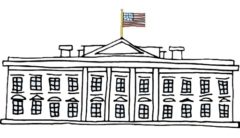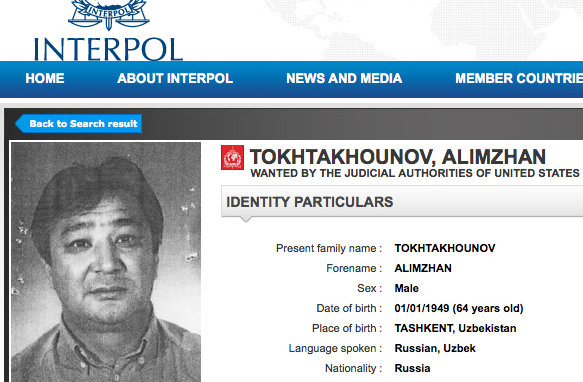The Donald J. Trump administration will be remembered as among the most tumultuous in American history. Future historians will record the volatility of the president’s decision-making, as well as the internal struggles of a government forced to grapple with it. They will write that his advisors came to find him unfit for the job. He couldn’t focus on governing, and he was prone to abuses of power, from ill-conceived schemes to punish his political rivals to a propensity for undermining vital American institutions. They will document how officials considered drastic—some might say desperate—measures to warn the American people. During the Watergate scandal, key government leaders quit in protest of President Richard Nixon’s inappropriate activities. The press dubbed it the “Saturday Night Massacre.” What is not known is that the same measure was considered less than halfway into the Trump administration, as top advisors and cabinet-level officials contemplated what might be called a midnight self-massacre, resigning en masse to call attention to Trump’s misconduct and erratic leadership. The idea was abandoned out of fear that it would make a bad situation worse. It got worse anyway. Full awareness of the deteriorating state of affairs dawned on me late one evening, when the loss of a good man revealed the true nature of a troubled one. It was the evening that ultimately led to the writing of this book.
*
On August 25, 2018, John McCain, one of America’s last great statesmen, died at home in Arizona. In the days that followed, the country mourned the passing of an American hero. McCain, a former military officer, first came to be known to the public for the five years he spent as a prisoner of war in Vietnam, where he was regularly beaten and tortured by enemy forces. One of his captors shattered his right shoulder. They broke his left arm. They cracked his ribs. In his agony, John contemplated suicide. For the rest of his life, he was unable to raise his arms to their full height due to his injuries and the aftereffects of the torture. Yet when his captors offered him an early release, he refused until all other Americans captured before him were set free.
McCain finally was released in 1973. He was welcomed home by President Richard Nixon and later embraced as a Republican leader of the future by Ronald Reagan. He went on to build a vast legacy of public service as a member of the US House of Representatives, a senator, and a two-time candidate for president. At his funeral in Washington, DC, John was celebrated and mourned by a bipartisan crowd of government leaders, foreign heads of state, and millions of Americans who watched and listened nationwide.
“In one epic life,” former president George W. Bush told the mourners, “was written the courage and greatness of our country.” Former president Barack Obama took to the podium to herald McCain as “a patriot who embodied so much that is best in America.” He added: “When John spoke of virtues like service and duty, it didn’t ring hollow. They weren’t just words to him. It was a truth that he had lived and for which he was prepared to die.” A central theme echoed throughout the service. John McCain was a man of character, thoroughly committed to his principles and worthy of reverence, including by people who didn’t always agree with him, or who he occasionally irritated with his stubbornness and persistence.
But one man did not share these sentiments. Instead of feeling somberness, he felt spite. Instead of respect, he offered resentment. That man was the sitting president of the United States. It was no secret that Donald J. Trump hated John McCain. “He is not a war hero,” Trump remarked in 2015 to a stunned audience in Iowa. “I like people who weren’t captured.” Though he received McCain’s support during the general election, then-candidate Trump bristled when the senator withdrew his endorsement in the wake of the Access Hollywood scandal, in which the businessman bragged about grabbing women’s private parts, and he could not abide McCain’s criticisms once in office.
It was no surprise that the president was agitated by the outpouring of public appreciation toward the senator. He is flustered whenever the spotlight shifts away from him, but especially if it moves toward a perceived rival, even a deceased one. What was surprising was the lengths to which he would go to settle the score. President Trump, in unprecedented fashion, was determined to use his office to limit the nation’s recognition of John McCain’s legacy.
After being lowered briefly on the day of the senator’s death, the American flag atop the White House was raised the next evening. Aides worried this would send a bad signal, and tried to have it relowered. White House senior advisors implored President Trump to issue a proclamation for flags at all federal office buildings to remain at half-staff. They urged him to issue a formal statement on the late senator’s death and legacy. These few gestures are standard protocol by any president when a distinguished senator dies, regardless of their party, as a sign of respect for the office and a demonstration that some things come ahead of partisanship. President Trump rebuffed each request. In fact, he wanted all government buildings to hoist their flags back up. Members of the staff were dumbfounded. Many among us had disagreements with John over the years, but we all honored his service to the nation as we would any person who wore the flag of the United States into battle and suffered at the hands of an enemy, let alone his later contributions to our country.
The standoff was broken not by a change of heart, but by public pressure. President Trump faced withering criticism for withholding support for McCain. Internally the temperature was rising. After frantic pleas from the communications team and increasingly bad television coverage, the president finally relented and allowed for a short statement to be drafted and for a proclamation to be issued. He also allowed administration surrogates to attend memorial services in his place. The flags, which by then most agencies had put at half-staff anyway instead of waiting longer for a presidential order, were finally lowered everywhere.




Miles Taylor, the former chief of staff at the Department of Homeland Security, has revealed himself to be “Anonymous,” the author of a New York Times op-ed and book critical of the Trump presidency.
“To be clear, writing those works was not about eminence (they were published without attribution), not about money (I declined a hefty monetary advance and pledged to donate the bulk of the proceeds), and not about crafting a score-settling ‘tell all’ (my focus was on the President himself and his character, not denigrating former colleagues),” Taylor wrote in a Medium post.
“Nevertheless, I made clear I wasn’t afraid to criticize the President under my name.”
Taylor, in media interviews as recently as August, denied being “Anonymous.”
Throughout his post, Taylor was explicit about his commitment to the Republican Party and asserted he “wanted this President to succeed” when he joined the administration alongside John Kelly, Trump’s first Homeland Security secretary who later became the White House chief of staff.
But Taylor went on to say, “Too often in times of crisis, I saw Donald Trump prove he is a man without character, and his personal defects have resulted in leadership failures so significant that they can be measured in lost American lives. I witnessed Trump’s inability to do his job over the course of two-and-a-half years.”
On page 14:
Donald Trump is fond of telling officials that he learned an important lesson in business: People are not scared when you threaten a lawsuit, but they are scared when you actually sue them. That is among his favored methods of argument—attacking critics to intimidate and silence them. He has been doing it for years.
After I published the op-ed in the Times, Trump responded with a one-word tweet: “TREASON?” Those seven letters say it all. To the president, criticism is treasonous. I find this to be a very un-American position. Former president Theodore Roosevelt argued that it was treacherous not to criticize the nation’s chief executive, as long as it was honest criticism. “To announce that there must be no criticism of the President, or that we are to stand by the President, right or wrong, is not only unpatriotic and servile, but is morally treasonable to the American public,” he wrote. “Nothing but the truth should be spoken about him or anyone else. But it is even more important to tell the truth, pleasant or unpleasant, about him than about anyone else.” We do not owe the president our silence. We owe him the truth.
PRESIDENTIAL CRITICISM
The President is merely the most important among a large number of public servants. He should be supported or opposed exactly to the degree which is warranted by his good conduct or bad conduct, his efficiency or inefficiency in rendering loyal, able, and disinterested service to the Nation as a whole. Therefore it is absolutely necessary that there should be full liberty to tell the truth about his acts, and this means that it is exactly as necessary to blame him when he does wrong as to praise him when he does right. Any other attitude in an American citizen is both base and servile. To announce that there must be no criticism of the President, or that we are to stand by the President, right or wrong, is not only unpatriotic and servile, but is morally treasonable to the American public.
Theodore Roosevelt
“Roosevelt in the Kansas City Star”, 149, May 7, 1918
https://www.amazon.com/Rage-Bob-Woodward/dp/198213173X
Yet another tell-all from Bob Woodward (publish date 15-Sep-2020).